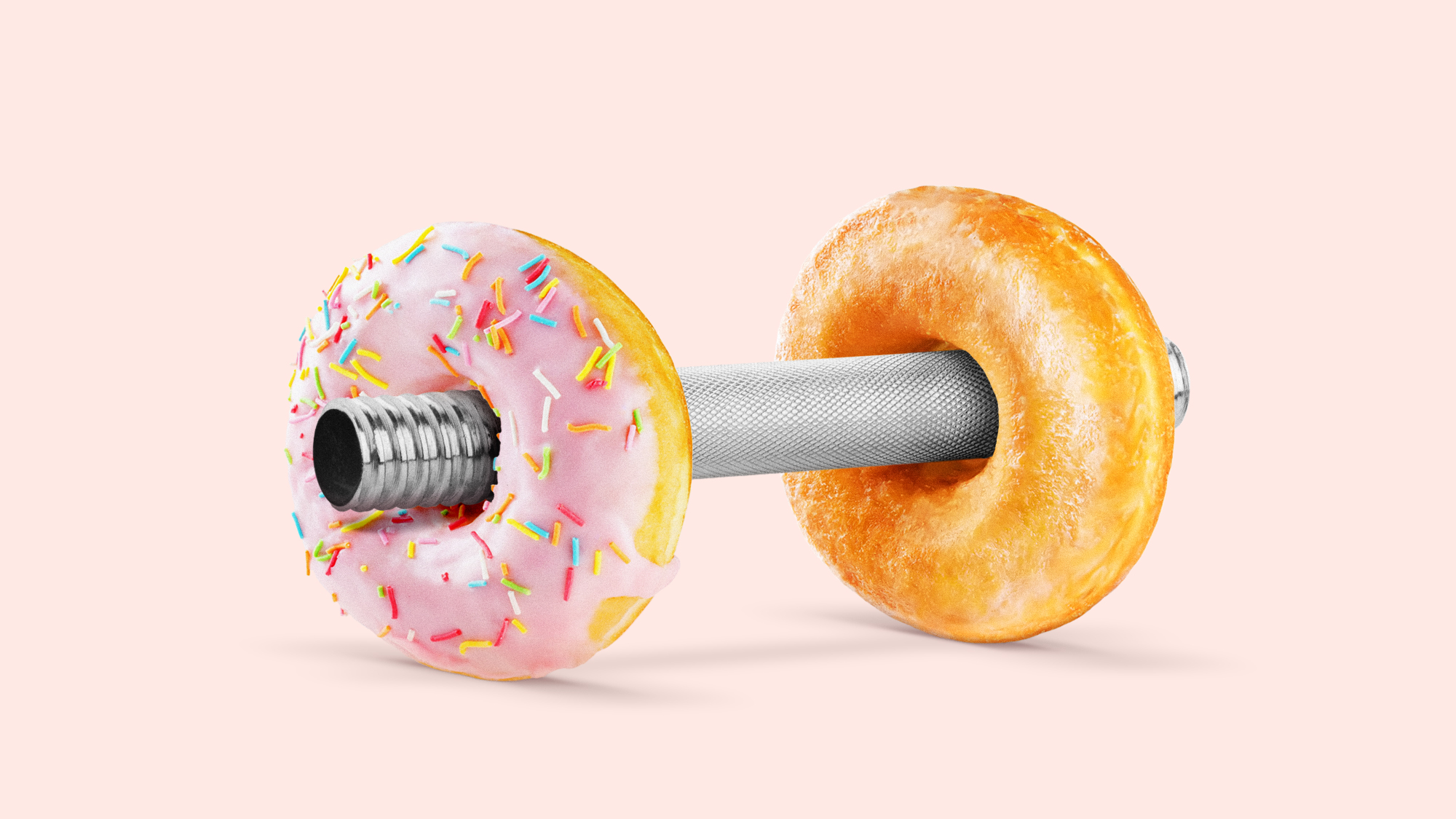Why are people microdosing Ozempic?
Tiny doses of the weight-loss drug can sidestep its unpleasant side effects, say influencers. But is customising the dose a good idea?

A free daily email with the biggest news stories of the day – and the best features from TheWeek.com
You are now subscribed
Your newsletter sign-up was successful
To converts sharing the gospel online, "microdosing" Ozempic is a crafty way to lose pounds without enduring the weight-loss drug's "eggy burps", constipation and other suboptimal side effects, said Harriet Walker in The Times. But some experts are warning that this viral weight-loss trend is likely to be ineffective.
'Massive spikes' in interest
Ozempic is the brand name for an injectable, semaglutide-based drug that helps regulate blood-sugar levels. It's currently only prescribed on the NHS to treat Type 2 diabetes – although, under certain conditions, GPs can now prescribe another semaglutide-based drug, Wegovy, for weight-loss. In recent months, however, Ozempic has become the private-prescription weight-loss drug of choice among the rich and famous in the UK and the US.
Microdosing, more commonly associated with hallucinogenics, is the practice of taking tiny amounts of a drug, in the hope of feeling some of its benefits, without risking the full side effects. The craze for microdosing Ozempic, or a similar drug called Mounjaro, "started in Silicon Valley", said Walker, and now it's "everywhere".
The Week
Escape your echo chamber. Get the facts behind the news, plus analysis from multiple perspectives.

Sign up for The Week's Free Newsletters
From our morning news briefing to a weekly Good News Newsletter, get the best of The Week delivered directly to your inbox.
From our morning news briefing to a weekly Good News Newsletter, get the best of The Week delivered directly to your inbox.
People are microdosing Ozempic as a weight-loss "hack", having heard "horror stories" of the side effects of the standard dose of the drug, including "nausea, vomiting" and "intense constipation", said The New York Times,
"Off-label usages" of Ozempic aren't tracked, said the US science-and-tech news site Futurism, so "we can't say for sure" how many people are microdosing, but online influencers are "preaching the practice's benefits" and trying to flog "expensive courses on how to hack" dosages. And, according to Google Trends keyword analysis, there have been "massive spikes" in interest in the practice over the past year.
For now, "the micro-zempic crowd" is "limited to a small (and wealthy) elite", said Walker. Indeed, the private-prescription use of Ozempic is ushering in "a new age of class disparity", trend forecaster Dan Hastings-Narayanin of The Future Laboratory, told The Times journalist. "Obesity will become a sign of the working class," he said.
'Placebo effect'
The jury's out on whether microdosing semaglutide drugs works. Some experts believe that people who lose weight in this way may be "super responders" to the drug, said The New York Times. Or they may simply be enjoying a placebo effect, which encourages them to make other changes to their lifestyle that can lead to weight loss
A free daily email with the biggest news stories of the day – and the best features from TheWeek.com
After microdosing Mounjaro, said The Times's Walker, "half a stone is gone" – weight that "I've been trying to lose for as long as I can remember". Jeans "I haven't been able to sit down in for a year" fit again, and my "sciatic pain" has disappeared.
Tiny doses of Ozempic "could curb hunger somewhat", Daniel Drucker, a medical researcher who has consulted for Ozempic's maker, Novo Nordisk, told the New York Times. But people "don't typically get weight loss if we go to such a low dose", Mir Ali, medical director of MemorialCare Surgical Weight Loss Center in California, told Women's Health.
Is microdosing safe? Getting the dose right "requires complicated maths and conversions", Dr Alexandra Sowa, author of "The Ozempic Revolution", told the health site. Prolonged use of tiny amounts of medication also increases the risk of consuming it once its use-by date has expired.
But, even if the benefits of microdosing Ozempic are so far unproven, those following the trend are unlikely to come to harm, said Drucker. "I'm not concerned that they’re going to grow three arms or have something horrible happen to them," he said.
Chas Newkey-Burden has been part of The Week Digital team for more than a decade and a journalist for 25 years, starting out on the irreverent football weekly 90 Minutes, before moving to lifestyle magazines Loaded and Attitude. He was a columnist for The Big Issue and landed a world exclusive with David Beckham that became the weekly magazine’s bestselling issue. He now writes regularly for The Guardian, The Telegraph, The Independent, Metro, FourFourTwo and the i new site. He is also the author of a number of non-fiction books.
-
 How the FCC’s ‘equal time’ rule works
How the FCC’s ‘equal time’ rule worksIn the Spotlight The law is at the heart of the Colbert-CBS conflict
-
 What is the endgame in the DHS shutdown?
What is the endgame in the DHS shutdown?Today’s Big Question Democrats want to rein in ICE’s immigration crackdown
-
 ‘Poor time management isn’t just an inconvenience’
‘Poor time management isn’t just an inconvenience’Instant Opinion Opinion, comment and editorials of the day
-
 The truth about vitamin supplements
The truth about vitamin supplementsThe Explainer UK industry worth £559 million but scientific evidence of health benefits is ‘complicated’
-
 Obesity drugs: Will Trump’s plan lower costs?
Obesity drugs: Will Trump’s plan lower costs?Feature Even $149 a month, the advertised price for a starting dose of a still-in-development GLP-1 pill on TrumpRx, will be too big a burden for the many Americans ‘struggling to afford groceries’
-
 The plant-based portfolio diet invests in your heart’s health
The plant-based portfolio diet invests in your heart’s healthThe Explainer Its guidelines are flexible and vegan-friendly
-
 The battle of the weight-loss drugs
The battle of the weight-loss drugsTalking Point Can Novo Nordisk and Eli Lilly regain their former stock market glory? A lot is riding on next year's pills
-
 Food may contribute more to obesity than exercise
Food may contribute more to obesity than exerciseUnder the radar The devil's in the diet
-
 Orthorexia nervosa: when clean eating goes too far
Orthorexia nervosa: when clean eating goes too farThe Explainer Being healthy is fine, but obsessing over it is dangerous
-
 A happy gut is a healthy gut. These 5 tips aim to help you achieve that goal.
A happy gut is a healthy gut. These 5 tips aim to help you achieve that goal.The Week Recommends A healthy gut is all the rage in wellness circles
-
 China's soaring dementia rates
China's soaring dementia ratesUnder The Radar Government launches action plan after cases in China increase 50% faster than global average